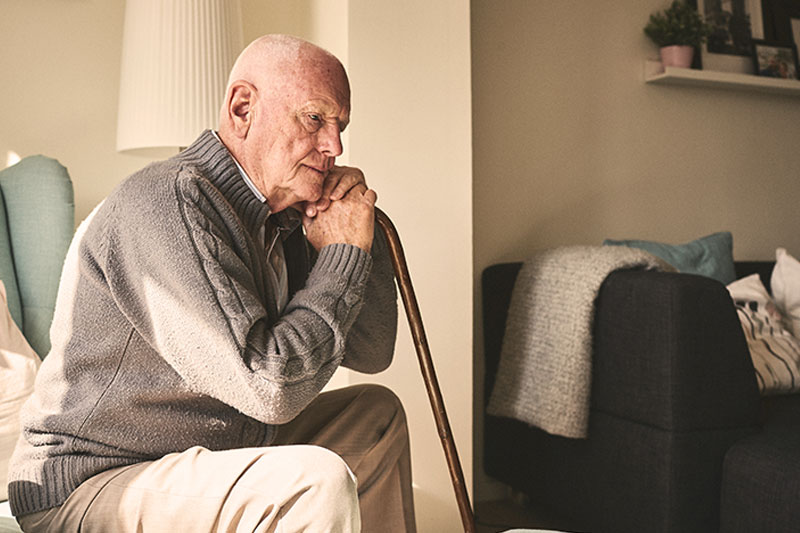
Depression in senior adults is a concerning issue for many families.
After spending time with relatives and revisiting beloved traditions and memories throughout the holiday season, it’s common for a feeling of nostalgia and sadness to set in for older adults. Even though some extent of temporary post-holiday sadness can be anticipated, it is essential to be aware that it can grow into depression. Depression is a serious mental health condition that is certainly common for older adults, but is not a natural part of aging.
How can you determine whether an older adult you love has become depressed – and, what can you do to assist? Our Topeka at-home care experts have the answers.
First, it’s important to be aware of the risk factors for depression in senior adults, which include:
- Being lonely and isolated
- An inactive way of life
- Stress
- Chronic health issues
- Sleeping problems
- Addictive habits
- A family history of depression
If a senior you love fits into any one of these classifications, or if you’re simply concerned that the senior could possibly be on the verge of depression, watch out for these red flags:
- Persistent feelings of hopelessness, sadness, anxiety, emptiness, guilt, or low self-esteem
- Fidgeting, irritability, or restlessness
- A lack of interest in interacting or engaging in previously-enjoyed activities
- Tiredness and listlessness
- Changes to eating or sleeping patterns
- Trouble with memory, decision-making, or concentration
- Thoughts or conversations about the subjects of death or suicide
- If you suspect depression in someone you love, get help right away. Depression should never be shrugged off as something the person has to “get over.” It is a chronic condition that needs medical assistance.
The doctor will need to assess the senior, and can then come up with a treatment plan, which may include:
- Medications: There are effective prescriptions available that can make a significant impact on how the older adult feels by balancing mood-affecting hormones.
- Counseling: A psychologist or other licensed mental health care specialist can help the older adult talk through feelings and incorporate treatment solutions such as cognitive-behavioral therapy.
- Brain stimulation: If a senior isn’t responding well to conventional depression therapeutic treatments, ECT or rTMS may be considered, which utilize electrodes or magnets to impact the brain directly.
There are actions you can take to help prevent depression in the seniors you love, such as by encouraging:
- Socialization and involvement in enjoyable activities, including exercise. (Participating with the older adult will offer extra inspiration and support.)
- Following a healthy diet plan and getting at least seven hours of sleep each night.
- Speaking up about their mental health worries and needs.
An in-home caregiving companion from Grace Home Care, a provider of award-winning Topeka at-home care, can be tremendously helpful for seniors who are at risk for or experiencing depression. Our care providers are thoroughly trained and experienced in meeting an array of senior care needs at home, while offering the warm companionship to give socialization a boost and to bring a spark of joy every single day.
Give us a call at 785-286-2273 for a complimentary in-home consultation and for additional details on how we can help enhance overall health and wellness for the seniors you love with individualized care in the home.
